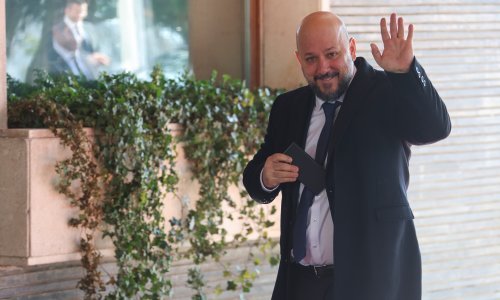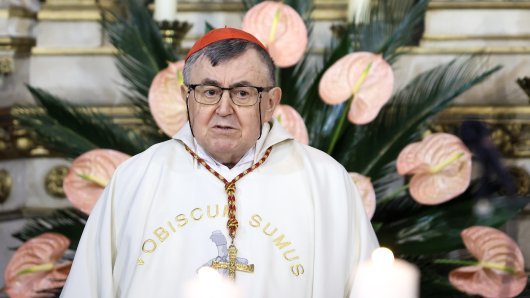After six months of work, the parliamentary commission of inquiry into the privatisation of the oil company INA on Friday wrapped up its work without any agreeing on any point, so it will not present a single report to parliament - the conclusions proposed by the ruling majority were voted on, while the opposition will present its conclusions as a dissenting opinion.
"There is more politics here than facts," said commission chair Dragica Zgrebec of the opposition Social Democrats (SDP).
Deputy chair Boris Kunst of the ruling Croatian Democratic Union (HDZ) said the HDZ and the ruling coalition partner Peasant Party (HSS) could not accept the opposition's position that INA's first privatisation agreement with Hungarian oil company MOL in 2003 had been legal and useful to INA and Croatia or that it had not conditioned the rest of the privatisation process.
Goran Maric of the HDZ said the first round of MOL's acquisition of a stock in INA had been harmful for Croatia.
The ruling coalition did not agree with the position of the SDP and the opposition People's Party (HNS) under which the fact that MOL members on INA's management board did not use veto rights in reserved matters meant that MOL had not been favoured in the privatisation, saying that other bidders for the purchase of 25 per cent plus one share in INA had not been familiar with reserved matters, unlike MOL.
The ruling coalition insisted that INA's first privatisation had favoured MOL also by giving it far more managing rights than those stemming from part-ownership, which the opposition denied, saying that MOL had acquired disproportionate managing rights when the shareholders agreement was changed in 2009, when the HDZ was in power.
The opposition said in its dissenting opinion that last year's agreement did not protect national interests, because of managing rights and the fact that MOL was allowed to sell 10 per cent of INA property a year without the Croatian side's consent.
"Everyone is running away from that agreement," Gordan Maras of the SDP said, asking the HDZ how it could consider the shareholders agreement good when even Finance Minister Ivan Suker and the then Deputy Prime Minister and incumbent PM Jadranka Kosor were distancing themselves from it.
Maras suggested that parliament vote on a conclusion which would oblige the government to launch proceedings for changing the agreement.
He dismissed the HDZ's claims that the SDP was cooperating with former PM Ivo Sanader, saying it was ridiculous that such an accusation was coming from Kosor, who he said had been Sanader's close aide for seven years and was now afraid of losing the PM's post.
The parliamentary commission's HDZ members protested against Maras's statement, with Josip Salapic saying the HDZ, "unlike the SDP, is interested in facts and not in toppling the government".
Salapic also dismissed the SDP's proposal that Kosor testify before the commission. He reiterated that Kosor had not taken part in the work of the government commission for INA's privatisation and that the chief negotiator had been the then economy minister, Damir Polancec.
"We won't consent to politicking (or) toppling the HDZ government, but only to facts," said Salapic.
Josip Leko of the SDP asked the ruling coalition who they trusted, Sanader and Polancec, who claimed that Kosor, as well as the entire government and the HDZ leadership, had been involved in the INA deal, or those who claimed otherwise.
"The facts aren't at issue... The HDZ members (on the parliamentary commission) were given, or decided themselves, that their only task is to defend the Jadranka Kosor cabinet," said Leko.
The ruling majority dismissed the opposition's proposal that the commission report, with witness depositions, be sent to the State Prosecutor's Office, which would report to parliament in 90 days' time on what it had undertaken.
The HDZ majority voted a conclusion that the Ivica Racan cabinet, contrary to good business practice, had decided to sell INA without an appropriate appraisal of its market value, and that the selection of consultants and the contract signed with them had not been transparent at all.
The SDP countered by saying that proof of the fact that the HDZ-led governments which followed the Racan cabinet had not pursued INA's privatisation lawfully lay also in the fact that they did not report on the privatisation to parliament, although they were obliged to do so under the law.





































